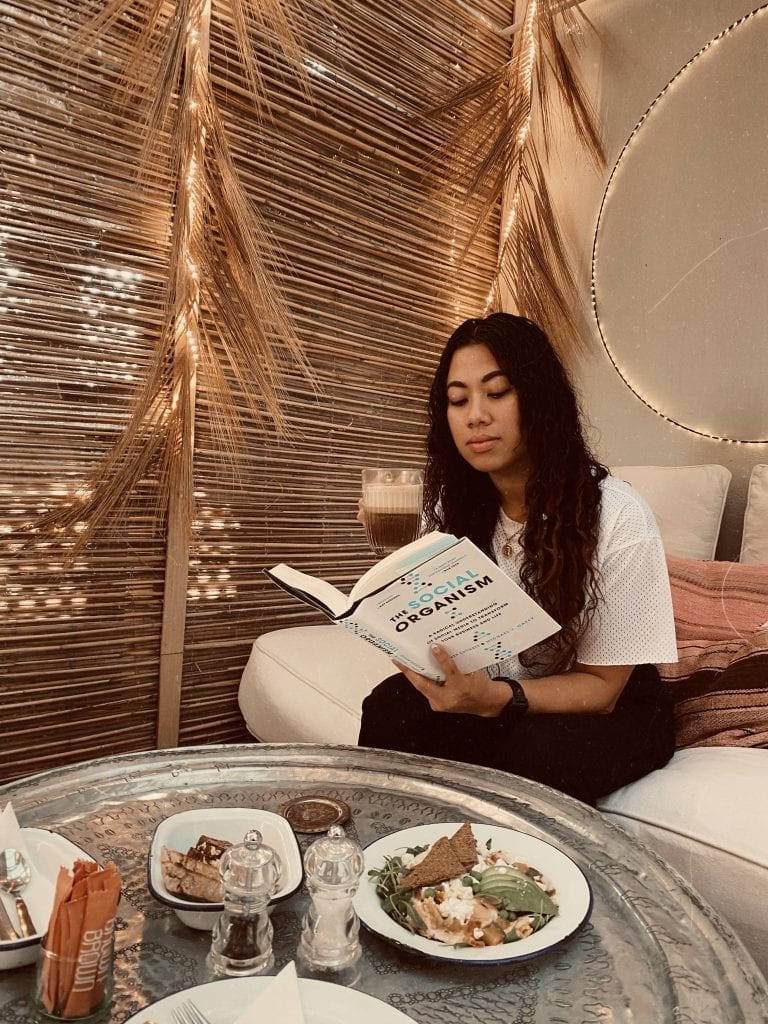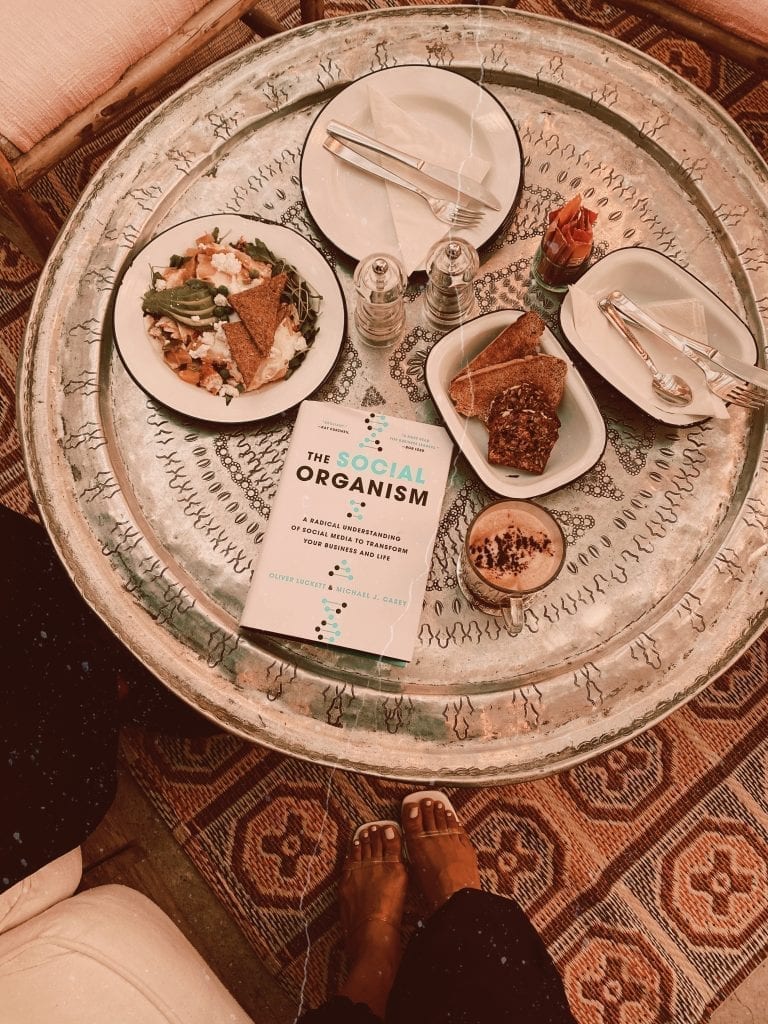Mention “social media” anywhere and you’ll most likely be greeted by either gleeful approaches or dirty looks. With a reach that transcends racial and ethnic lines, class, gender, nationalities, borders and more, it’s impossible to ignore the effects of social media on our lives, no matter what reaction it begets. I grappled with these thoughts about the evolving world of social media as I dove into Oliver Luckett and Michael J. Casey’s book, The Social Organism: A Radical Understanding of Social Media to Transform Your Business and Life, with some traditional Arabic bread and Shakshouka on a recent trip to Dubai.

Whereas social media elicits joy for those who see and understand it as a tool that adds, expands and inspires, there are many who see it as a tool that distracts, degrades and disrupts. Seeing both the positive and negative reactions of social media, it makes you think: how can the same channel inspire change but also foment extreme violence and hatred?
In an effort to understand how social media works, Luckett and Casey frame the discussion in a way that I’ve never read anywhere else before: seeing social media from a biological standpoint.
Understanding social media as a “social organism” was imperative to unleashing its potential to deliver positive results in our lives. The term “social organism” was coined by the 19th-century French sociologist Émile Durkheim, who viewed society as a living being whose health was determined by how well the core realms of economics, politics and culture interacted with each other.

The book also made me understand what kind of content goes viral. Contrary to what we think (angry posts or articles that get reshared thousands of times), posts that are positive and filled with joy tend to go viral – shared, liked, retweeted possibly thousands or even millions of times. The positive, emotional resonance is what keeps humans connected in the digital sphere, not the hate-filled rhetoric that seeks to divide and separate.
But what about trolls, fear-mongering and those who espouse hate speech? Turns out, Luckett and Casey believe that these are integral to keeping the balance of the social organism. That instead of censorship, we can all work collectively to drown out these messages with compassion and empathy. Just as the body seeks to cure and heal itself when we get sick, the social organism also functions the same way.

We should no longer dismiss social media as trivial, nor fear it as an agent for disorderly chaos. Instead, in understanding and treating it as a social organism, we have a unique opportunity to nourish a new, healthier society and to build a more inclusive, prosperous, and sustainable world.
The Social Organism by Oliver Luckett and Michael J. Casey
It is a radical understanding indeed, a departure from how we usually think of social media. It is everywhere around us, an integral part of how we live our lives. As much as we think of it as the “other,” its effects on our daily existence have been changed, shaped and influenced by the content that we consume. Through The Social Organism, we become equipped with a better strategy on how to use it for the better, use it for our collective good.
Get the Book Look:
White drop shoulder oversized crop top from Missguided
Black plain cargo pants from Missguided
Aurelian Coin Necklace from Revolve
PVC Strap Slides (similar) from Shopbop
*Disclosure: The links above are affiliate links. These picks are editorially selected, but if you purchase, She Reads may get something in return. We are a participant in the Amazon Services LLC Associates Program, an affiliate advertising program designed to provide a means for us to earn fees by linking to Amazon.com and affiliated sites.







Leave A Comment